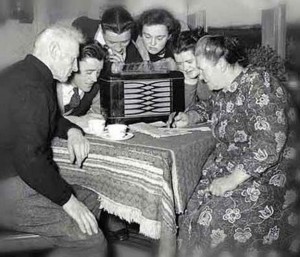
Will the ads sway consumers in favor of industry concerns or rally support for higher mileage standards?
The auto industry is going on the attack – a trade group launching a radio campaign this week aimed at shooting down the big increase in federal fuel economy standards being proposed by the White House.
The 60-second commercials, produced for the Alliance of Automobile Manufacturers, will argue that boosting the Corporate Average Fuel Economy, or CAFE, standards to 56.2 mpg in 2025 “threatens (the) progress” of the auto industry’s fragile recovery – and could force Americans out of the big cars and trucks they love and into small, limited-use electric vehicles.
The industry campaign could present another headache to the Obama Administration, which is currently focused on hammering out a compromise with the Republicans on a bill to increase the nation’s debt ceiling. But the automotive alliance also risks alienating consumers who are worried about the impact of near-record fuel prices and who, surveys show, are demanding big increases in fuel economy. Mileage, a senior Ford official last week acknowledged, is the single most important concern for most American car buyers this summer.
But the Alliance ads will target an equally serious public concern: jobs. A recent study by the Ann Arbor, Michigan-based Center for Automotive Research warned that such a big increase in the federal mileage requirements could tack up to $10,000 onto the price tag for the typical American automobile. In turn, the CAR study warned, that could reduce by a third total American car sales and cost hundreds of thousands of auto industry jobs in the U.S.
The industry ads will launch Tuesday and air in seven markets, notably including Michigan and Washington, D.C.
The copy proclaims that, “After tough times, today’s automobile industry is on a highway to recovery.” But it warns that the proposed increase in fuel economy “threatens that progress” and might not only result in sharply higher prices, but also in an “electric car mandate.”
Not everyone agrees with the industry’s contention. Environmental groups, such as the Union of Concerned Scientists, have argued that the automakers are using scare tactics – the same moves that kept fuel economy rules from increasing through much of the ‘90s and first decade of the new millennium.
They also are criticizing the industry for talking about a turnaround that, for at least some makers, was taxpayer-funded. “We give GM billions of dollars, and what do taxpayers get in return? Opposition to a process that will clearly save them income and give them improved cars,” said consumer activist Ralph Nader.
Proponents of a sharp increase in federal mileage standards have their own data to point to, a new study by the Boston Consulting Group that predicted the industry could achieve big gains for just about $2,000 a vehicle – a figure the study’s authors noted would readily be recovered on fuel savings – especially if gas prices continue to rise.

I just had to get my two cents in on this. Before I retired, and I think it was in 2005, there was talk of the E.P.A. raising mileage standards for vehicles. i was working in a GM stamping plant that provided a high percentage of parts to a truck assembly plant, and trucks were “hot” at the time. In meeting after meeting with management, we UAW production workers were given the same message: if mileage standards were increased, it would hurt our truck business, and no doubt lead to layoffs, and we needed to write our congresspersons, call the White House switchboard, etc. That was bad enough, but then when I went to the next union meeting, our local’s VP was ticking off the same talking points to the membership. It really disgusted me, because I always felt, from the late 70s on, that if the Detroit auto companies would have expended as much effort on adapting to the changing world as they did fighting what to me was the inevitable need for that change in mileage standards and propulsion systems for cars, we would never have gotten ourselves in the pickle that we ended up being in. The Japanese didn’t fight these standards but for the most part embraced them, and sure ended up a lot better for it. The D3 is still playing catch up now, and would be better off taking this environmental ball and running with it, because whether we aging baby-boomers want to realize it or not, less expensive transportation is going to be a high priority for the younger generations coming into majority now. The D3 can either lead the way, for once, or they are going to be pushed out of the way.
If the government wants to change consumer behavior to buy more fuel-efficient vehicles they should do so either through government paid incentives or through a gas tax. I prefer the latter. CAFE is a joke.
Matt,
It’s easy to dismiss CAFE, and I often point out its flaws, but I really do wonder whether, had we not had some form of government mandate, the auto industry would even be delivering the mileage they are today. Yes, there are likely some better alternatives but as with safety, mandates drove the industry to act. Consumer demand may have helped — eventually — in both instances, but the regulations, flawed as they might be, were critical in moving the needle.
Paul A. Eisenstein
Publisher, TheDetroitBureau.com